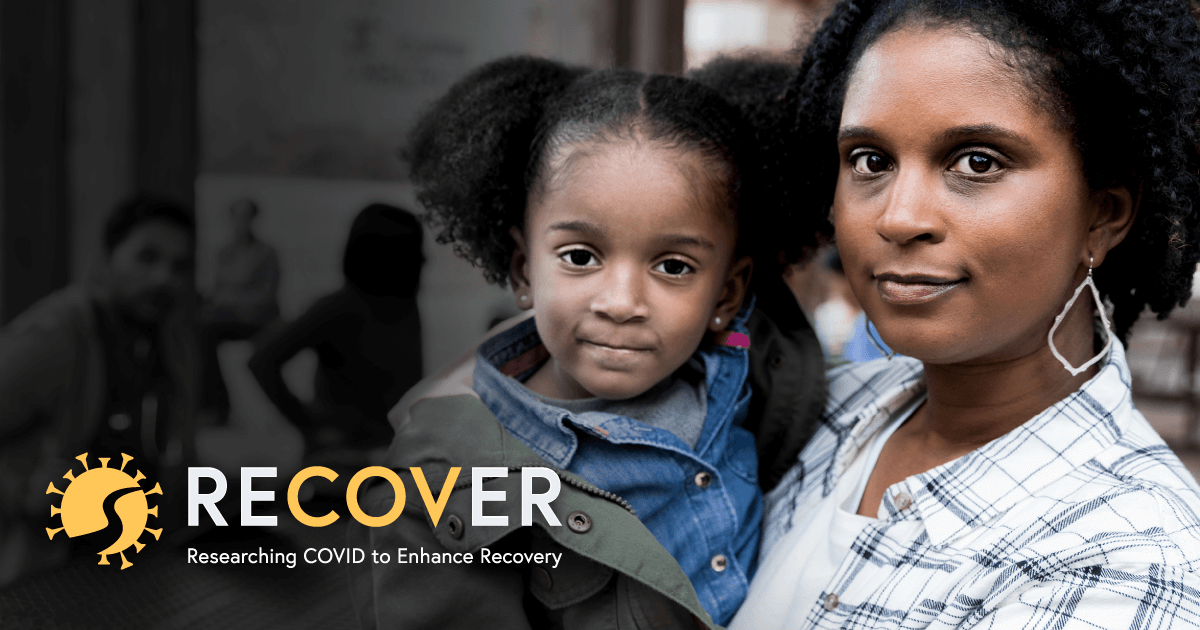Knopman, David S.; Koltai, Deborah; Laskowitz, Daniel; Becker, Jacqueline; Charvet, Leigh; Wisnivesky, Juan; Federman, Alex; Silverstein, Adam; Lokhnygina, Yuliya; Pilloni, Giuseppina; Haddad, Michelle; Mahncke, Henry; Van Vleet, Tom; Huang, Rong; Cox, Wendy; Terry, Diana; Karwowski, Jeannie; McCray, Netia; Lin, Jenny J.; McComsey, Grace A.; Singh, Upinder; Geng, Linda N.; Chu, Helen Y.; Reece, Rebecca; Moy, James; Arvanitakis, Zoe; Parthasarathy, Sairam; Patterson, Thomas F.; Gupta, Aditi; Ostrosky-Zeichner, Luis; Parsonnet, Jeffrey; Kiriakopoulos, Elaine T.; Fong, Tamara G.; Mullington, Janet; Jolley, Sarah; Shah, Nirav S.; Morimoto, Sarah Shizuko; Lee-Iannotti, Joyce K.; Killgore, William D. S.; Dwyer, Brigid; Stringer, William; Isache, Carmen; Frontera, Jennifer A.; Krishnan, Jerry A.; O’Steen, Ashley; James, Melissa; Harper, Barrie L.; Zimmerman, Kanecia O.; Lawler, Andrew; Johnson, Brandon; Pitsch, Chloe; Feuerriegel, Elen; McKeehan, Jeff; Molden, Joie; Reid, Kayleigh; Erlandson, Kristine; Dowling, Sarah; Wodushek, Thomas; Canton, Diara; Turut, Dilara; Sheppard, Ethan; Scott-Sutherland, Jennifer; Hauser, Kristine; Shaughnessy, Lynn; Doyle, Michael; Beck, Michelle; Heisey, Sabrina; Katragadda, Vaishanvi; Yusuff, Amidat; Perlack, Amy; Tran, Anh; Dwyer, Brigid; Altaras, Caroline; Merisme, Christie; Krause, David; Schulte, Duncan; Dupre, Fabiola; Sanchez, Gina; Krengel, Maxine; Ly, Monica; Asupoto, Olanike; Simmons, Quinneil; Schroeder, Ryan; Timlin, Shannon; Devis, Ycar; Carter, Della; Caceres, Leomaris; Rodriguez, Miguel; Alvarez, Zariya; Yakubov, Amin; Engelson, Celia; Reyes, Michael; Youkhana, Alvin; Jennings, Cheryl; Gonzalez, David; Naquiallah, Dina; Behun, Dylan; Stephen, Ellen; Timm, Emily; Bilimoria, Farrah; Li, Grace; Stricker, Jakob; Torres, Jimena; Garcia, Maria; Thomas, Michelle; Kang, Minnie; Suarez, Rebeca; Carmona, Tania; Ramirez, Ana; Kadubek, Grace; Baker, Aileen; Romo-Serna, Andrea; Predki, Barbara; Leman, Cindy; Panhans, Cristina; Roth, Genevieve; Rudraraju, Gowrisree; Miller, Hannah; DeLisa, Julie; Williams, Kat; Woodson, Kimberly; Jennette, Kyle; Carrera, Laura; Villanueva, Laura; Norwick, Maria; Martinez, Mariam; Rowley, Matt; Rutherford, Melissa; Carrithers, Michael; Pliskin, Neil; Perez, Nicolas; Durkin, Nicole; Maniar, Nikita; Beety, Rachel; Daspgupta, Raktima; Ramchandran, Ramaswamy; Jaramillo, Ruthie; Hasek, Sharon; Macias, Susy; Schuh, Tina; Ialacci, Sarah; Bailey, Christopher; Labbato, Danielle; Hautmann, Amanda; Smith, Beth; Nath, Dia; Meyer, Jessica; DiFrancesco, Kathryn; Walkup, Kevin; Pettinato, Kimberly; Curtis, Lynette; Daher, Joviane; Scott, Sarah; Koberssy, Ziad; Mavar, Caleb; Andrefsky, John; Merheb, Alexander; Hernandez, Carla; Baissary, Jhony; Atieh, Ornina; Pereira, Carol; Carpenter, Deborah; Raynor, Jennifer; Brunton, Kristine; Podgoreanu, Andreea; Bunch, Pyper; Brown, Richard; O'Brien, Sean; Dickey, Sheila; McNulty, Steven; Gajjar, Varsha; Neale, Alec; Cohen, Cari; Escobar, Carolina; Geary, Elizabeth; Campanella, Franco; Anderson, Kirsten; Prestige, Laura; Guidotti-Breting, Leslie; Biewer, Megan; Morton, Melissa; Mathenia, Nicholas; Adeyemi, Oluwadamilola; Hengst, Samanike; Chi, Wei Ning; Vanderloo, Adam; Caplan, Amanda; Chen, July; Acree, Mary Ellen; Glickman, Michael; Nakhate, Mukund; Dan, Zaw Nu; Switzer, Phyliis; Aryal, Shambhu; Sanchez, Jessica; Sims, Luke; Ferdinand, Rebecca; Mammadova, Mehriban; Grimes, Carolyn; Vidales, Elizabeth; Pham, Hoai Phuang; Lopez, John; Nielsen, Laura; Keller, Maryjane; Uruba, Syeda; Hernandez, Maria; Patel, Bela; Lin, Matthew; Umana-Sanchez, Virginia; Pak, Chong; Gainer, Jeffery; Burr, Renae; Trapuzzano, Ashleigh; Celso, Brian; Bienkowski, Grace; Bowman, Jennifer; Verdecia, Jorge; Zerwekh, Kathryn; Serrano, Liliana; Marotz, Meghan; Propp, Piper; Sarig, Yonatan; Murphy, Annie; Comfort, Brandon; Brown, Gina; Torres, Iri; Klein, Jeffrey; Reed, Jessica; Walker, John; Moore, John; Tempest-Browning, Lisa; Arain, Mudassar; Kemp, Pamela; Sullivan, Samantha; Obrien, Sean; Way, Sonja; Chevalier, Jessica; Sykes, Carly; Kruck, Carrie; Kiriakopoulos, Elaine; Sackett, Lisa; Kaden, Sarah; Bang, Claire; Hynes, Mary; Gallagher, Torrey; Childers-Kakos, Margaret; Zia, Ahmad; South, Amy; Oravets, Anne; Ferreyra, Carolyn; Glaze, Chad; Villanueva, Daphne-Dominique; Blystone, Erica; Pritchard, Jane; Alyward, Laura; Cooper, Melissa; Chidester, Michelle; Alderson, Rachael; Clark, Renee; Hodder, Sally; Sarwari, Arif; Bardes, James; Juskowich, Joy; Welch, Shelly; Civil, Alyssa; Bendl, Ashley; Dicker, Elisa; Hanson, Hannah; Viola, Heather; Morinigo, Janice; Pantaleon, Karisma; Marcon, Kathryn; Stone, Kimberly; Stewart, Kiwan; Evo-Ortega, Lorraine; Loizos, Maria; McVeety, Megan; Guliyeva, Sabina; Watson, Eric; Pehel, Shayna; Ko, Tim; Caropolo, Leah; Kocas, Huriye Deniz; Fernandez, Luis; ODonnell, Andrew; Saperia, Corey; Thai, Daniel; Pathak, Divya; Keller, Jennifer; Olszewski, Kelly; Clinton, Kimberly; Cherian, Kirsten; Dutton, Layton; Elepano, Ma; Lin, Rebecca; Mohapatra, Sukanya; Chen, Ting; Wroolie, Tonita; Leang, Zenita; Shashidhar, Sumana; Nguyen, Tiffany; Ravisankar, Ashwath; Weiden, Brycie; Brown, Daniel; Bolliger, Dawn; Glesne, Heather; Dixon, Jennifer; Chebrolu, Praneeth; Gazali, Zarine; Hurst, Whitney; Fry, Avery; Murthy, Ganesh; Grischo, Garrett; Erickson, Heidi; Gomez, Isaias; Copeland, Jacquelynn; Galaz, Judy; Autry, Lynn; Dilise-Russo, Marjorie; James, Michelle; Kala, Mrinalini; Marshell, Nikki; Borwege, Sabine; Vadovicky, Sheila; Marsh, Stephanie; Hartley, William; Murtagh, Linda; Kennedy, Anna; Meltzer-Christensen, Annie; Stringham, Caitlyn; Gaskin, Ella; Judd, Melissa; Smith, Ryan; Cote, Sarah; Mahasenan, Shreya; Bjorklund, Todd; Farner, Cheryl; Taylor, Barbara; Soileau, Bridgette; Cote, Cyrena; Hromas, Gabrielle; Scholler, Irma; Longoria, Lisa; Heard, Patricia; Johnson, Hillary; Jones, Johnnie; Tragus, Robin; Harris, Maya; Pinones, Alexis; Anderson, Alyssa; Hastings, Gabrielyd; Courtright, jessica; Hernandez, Jessica; Jayakumar, Madhumita; Fischer, Melinda; Sullivan, Michael; Solis, Pamela; Harteloo, Alex; Elias-Warren, Anna; Nguyen, Daniel; McDonald, Dylan; Nguyen, Helen; Rau, Holly; Mernaugh, Jean; Logue, Jennifer; Pagulayan, Kathleen; Watanabe, Kino; Huden, Kristen; Peabody, Laurel; Mei, Tiffany; Ogunwuyi, Catherine; Cobbina, Esther; Sankar, Ian; Nguyen, Lisa; Fromm, Nicole; Arnold, Rowan; Ogu, Stephanie; Yuan, Ying; Ibrahim, Homam; Szum, Izabella; Patel, Jignesh; Sultan, Sonia; Jazayeri, Yasmin; Hatlen, Timothy; Anderson, Betty; Munoz, Isabel; Rhys, Logan; Wright, Matthew; Vane, Ryan; Kim, Jessica; Diaz, Leticia; Yee, Nathan; Gruhn, Robert; Browngoetz, Sarah; Decato, Thomas; Johnson, Elisha; Chand, Arista; Ortiz, Ernesto; Bottrill, Ken; Henderson, Kymberly; Hildebrand, Lindsey; Johnson, Marketta; DeArmond, Richard; Hughes, Trina


